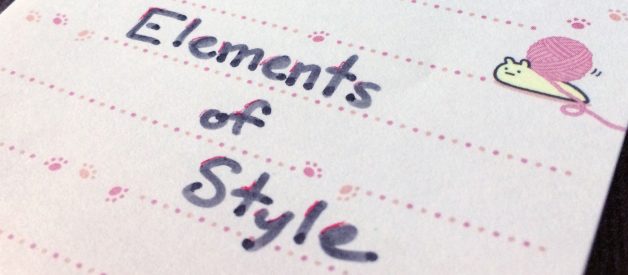
?The other day, I met an old friend.? When writing a sentence, sometimes you may wish to set the scene for your statement by using an introductory phrase. In the example above, the phrase ?the other day? provides the context for the independent clause that follows. Introductory phrases can come in a range of types ? learn more with this article!
Set the Stage
When, where, or with whom did it happen? Introductory phrases can ?set the stage? for what you are about to describe. Consider these examples:
Before eating breakfast, I wrote myself a note.In those days, it was common to write letters.On the train, I rushed to review my homework.
Each of these examples uses a prepositional phrase in the role of an introductory phrase to explain the background of the following statement. Notice how the introductory phrase is separated from the independent clause with a comma. This should always be the case.
Types of Phrases
The examples above used prepositional phrases, but there are also many other types that can serve as introductions to your sentences. For example, conditional phrases can be used to create if statements.
If it rains, we will cancel the picnic.If she calls, tell her I?m not home.If only they were offering the course I wanted to take, the decision would be easy.
Each of these conditionals uses an if statement as in introductory phrase that limits the meaning of the independent clause.
Furthermore, dependent clauses can also act as introductory phrases. You can learn more about using dependent clauses in this past article, but for now take a look at these examples:
When I got my admission letter, I was so excited.Because the weather was so good, we decided to go hiking.After she found her phone, the girl gave her friend a call.
The dependent clauses that begin these sentences cannot stand alone (they do not express complete thoughts), but they serve the role of an introductory phrase by creating context for the independent clause that follows.
Notice that in all cases, the introductory phrase is followed by a comma, which separates it from the independent clause.
Practice Time!
Place a comma in the following sentences to separate the introductory phrase from the independent clause. Then, indicate whether the introductory phrase is a prepositional phrase (P), a conditional (C), or a dependent clause (D). Check your answers at the end of the page!
- When the stars appeared the view became enchanting.
- If there are cookies left over take some to your brother.
- In the morning I have to go to class and turn in my homework.
- Whether or not I get the scholarship I want to study abroad.
- Over by the lake several kids were playing.
Did you find this helpful? Check us out at www.Ediket.com! Ediket is an online proofreading / copy editing platform that connects qualified English editors to people who need help with their writing. You write, we complete!
Ediket only costs $5 per page and takes around 30 minutes, so your writing can be perfect, even on a budget or with a deadline.
Answers:
- When the stars appeared, the view became enchanting. (D)
- If there are cookies left over, take some to your brother. (C)
- In the morning, I have to go to class and turn in my homework. (P)
- Whether or not I get the scholarship, I want to study abroad. (D)
- Over by the lake, several kids were playing. (P)


